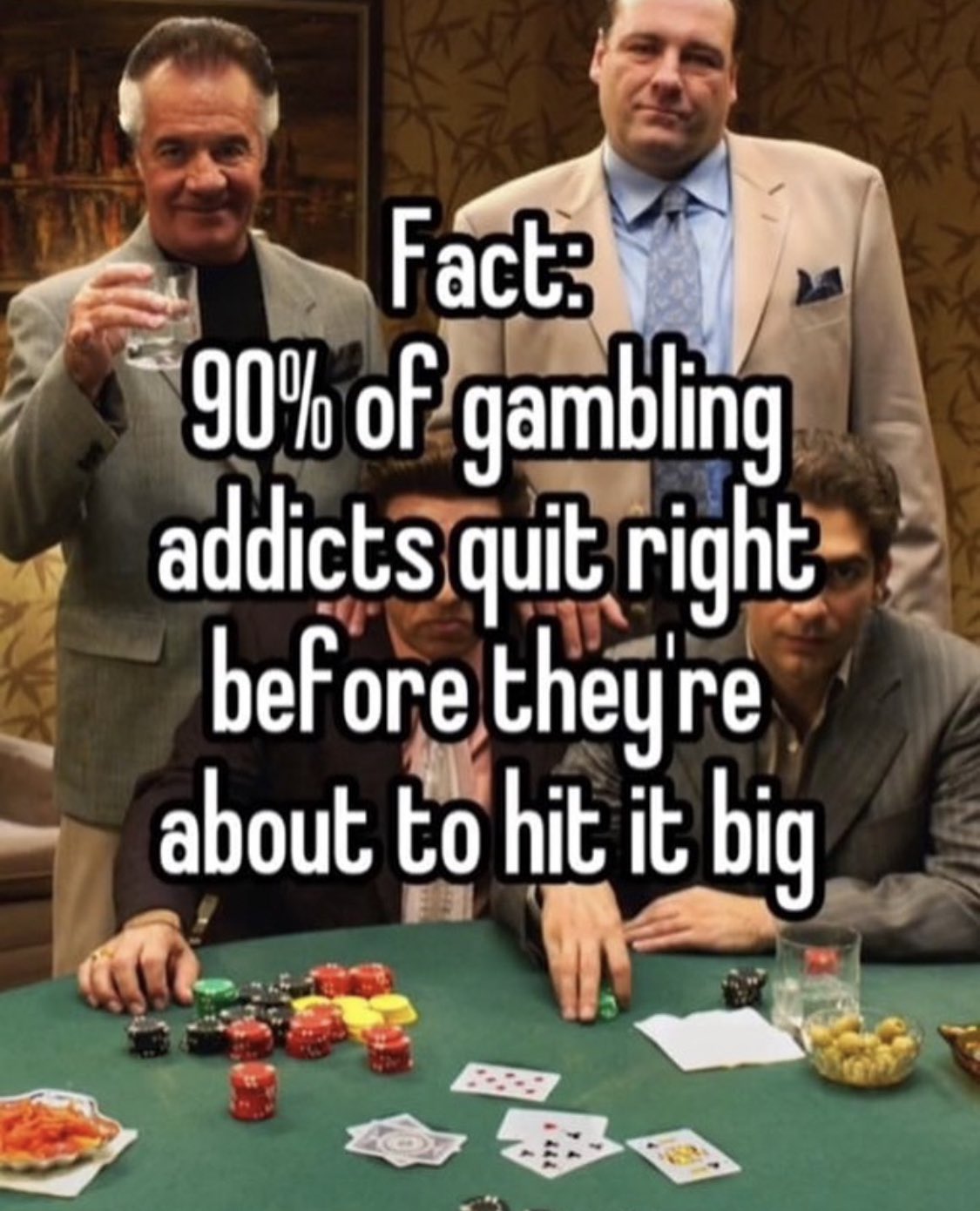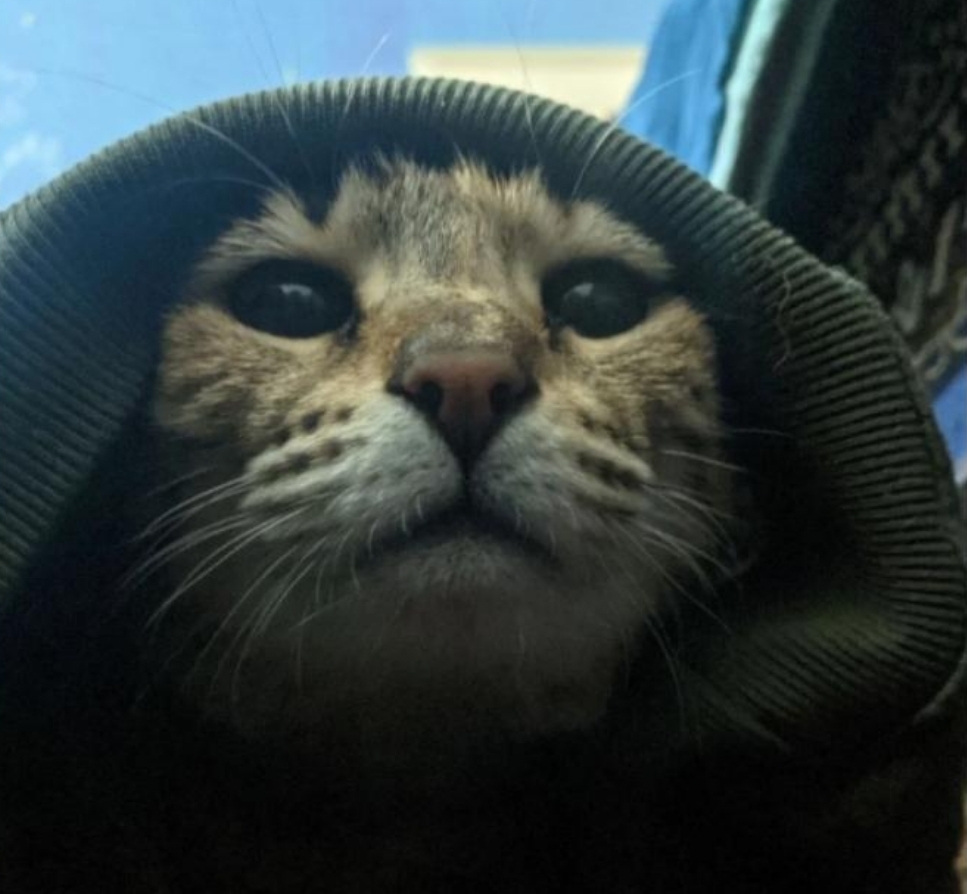The lotto is an additional tax for people who don’t understand math
A lot of people understand how unfair the math is, and still buy the tickets because “you never know.”
Source: I buy tickets sometimes because you never know…
If you can afford it, then it’s no harm really. I’ve made a profit from the lottery myself, albeit a minor one. Depending on the lottery, it’s not the worst thing you can give pocket change away to for a bit of fun. So I never understood this “you’ll never win” mentality/gatekeeping hobbies, people know the chances, but it’s fun either way.
I think the big problem is that people who are addicted to gambling are being suckered several times a week. It’s not really gambling, it’s buying a daydream. If a casino gave you similar odds in one of their slots, it would likely be illegal based on the odds and the payout. So people who think of it like gambling are getting the worst of it. The expected value never approaches anything close to fair, even at rhe highest jackpots.
people know the chances
This article agrees. Huge caveat:
…Osmond…obtained a database from the Connecticut Lottery containing 21 years’ worth of winners. What did he find?
They are largely poor, largely minorities, and often addicts.
The lottery preys on these people.
Vox, “4 ways the lottery preys on the poor”, 2016
If you win you still lose cause most places publish your name. This really is a field where wining is losing.
The money just make you an easily identified target or mark for the audience.
One the most memorable reddit posts of all time:
Entirely dependent on the lottery, the only one I have heard of this being a thing is the main US one. You can remain completely anonymous in the major European lotteries for example.
The US and Canada Lotteries publish the winners because it is a public record that they did in fact pay out. The European commisions that don’t publish have to face yearly accusation that they don’t actually pay out and then have to publish tax forms that do infact reveal the identity of winners.
I would sometimes buy one just to have something to wait for. It’s cheaper than buying trash online.
whip up some pizza dough and spend the week waiting for it to proof, then at the end you get a delicious pizza to look forward to
No, we do know. You will not win once.
Somebody might win a huge amount, but that one will not be you. I can guarantee that.
You will put in more money than you will get out. Somebody needs to pay their shareholders.
How can you guarantee that? The chance is close to zero, but not zero - ergo you cannot be 100% sure that they won’t win.
And that’s the point they are trying to make - you don’t need to be 100% logical to enjoy life. Sure, they probably won’t win. But thinking they might, the anticipation of scratching the tickets, etc, is worth it to them.
Oh no, I spent $3 to dream of being rich. Anyways
I always feel it’s more of a tax on hope. I know a few folks who play and the understand the odds very well… but what if!
‘What if’ can be very appealing for only £2, even if it is incredibly, incredibly, (repeat incredibly a thousand more times) unlikely.
Sucker tax
What a silly belief. Everyone knows the odds are ridiculous. It’s just that people are still hoping they’d win


Sucker!
It’s a quirk in statistics that buying a lottery ticket doesn’t really statistically improve your chances of winning over not buying a ticket.
But like also your odds of winning with a ticket are infinitely higher than without.
I’ll let you on a secret to increase your odds.
Since the chance to guess the correct numbers is so low that it’s almost guaranteed you made a bad guess… Just change the guess to increase your odds.
I think that the fact that people don’t believe you when you tell them that 1 2 3 4 5 6 has the exact same chance of winning than any other combination shows how bad we are with numbers , 1 2 3 4 5 6 is seen as something with very low odds of happening that is thought about as something that will never happen, but say 4 8 15 16 23 42 is seen as something that could happen anytime.
But please don’t move the island.
That’s the combo to my luggage!
Penneh!
Someone who thinks a lot has nothing to think about other than thinking
dont you think it is unthinkable to think that?
Once a thought is thought, you can’t unthink it
You win every time you do not play the lottery.
You have more chance to play the lottery your whole life and never win a significant amount, than it is to win a significant amount once.
Since the lottery is a business, big part of all the ticket sales is used to run the business (and to generate profit). Only the rest is used to pay the winnings.
The lottery is run by the state government where I am, and all profits are put back into the community as grants.
Your odds of winning are just as awful, but at least you know your money isn’t just making some rich people richer.
This seems to be more widespread than I thought! I assumed at least one of you were German. In Germany, Austria and Switzerland, there is a monopoly on lottery.
If the jackpot is up in the ridiculous set for life amounts, I’ll drop ten bucks on a few tickets here or there. My thoughts doing so is this: if I lose ten bucks, then nothing really changes in my life, but if I’m truly lucky and hit that one in a quadrillion chance of actually winning the jackpot, then everything changes. I don’t ever expect to win, but I won’t miss the minimal amount of money I’m throwing in for my chance to. So why not bet on the long shot every now and again as long as losing doesn’t hurt me financially?
I only ever participate when my friends or family invite me to. And only as insurance to not be left out if they somehow win.
The way I see it, is that by never trying, I have statistically about the same chances of winning as someone playing.
Except their chances are infinitely higher than yours. It’s miniscule, but miniscule and finite is infinitely bigger than zero. Math gets funky around the edge cases
Not really, the chances to find a winning ticket of a lottery walking on the street is almost comparable
I don’t think you can claim the win if you can’t show you’ve bought the ticket
The chances of finding a winning ticket on the street are many orders of magnitude lower. How often do you find unredeemed lottery tickets walking on the street? I never have, the most I’ve seen are losing scratch-offs.
The difference is still comparable.
That is how low you stand a chance of winning.
Want to see it in numbers? Last year people in the US spend 105 billion on lottery tickets. Meaning, you have 1 chance in 403 846 153 to win. If you played every week, it would take you 7 766 272 year to win. And even that isn’t certain.
In math: 1 = 0,9999999999
Couple things:
First, you fundamentally misunderstand how lottery winners are chosen. The odds are invariant with the number of players, the odds of winning are the same whether there’s no other players, or a billion. A sequence of numbers are chosen at random from a set range, and anyone whose ticket matches that sequence wins. You’re probably thinking of a raffle, where people purchase tickets which are shuffled together, and one is selected at random. The odds of winning a raffle do decrease with more players.
Second, the probability of two things happening is equal to the product of their individual probabilities, P(A and B) = P(A) × P(B). For example, let’s say I have 10 dice in a bag, and only one is red; the odds of pulling out the red die and rolling a 6 is equal to 1/10 × 1/6, for a total of 1/60. So the probability of finding a winning lottery ticket on the ground is exactly equal to the probability of finding an unredeemed ticket on the ground, P(A), multiplied by the probability of any individual ticket being a winner, P(B). If P(A) = 1/10, then you’re ten times more likely to win by buying a ticket yourself. If P(A) is 1/1,000, then you’re 1,000 times more likely. Considering that I’ve never found an unredeemed lottery ticket on the ground, P(A) is likely extremely small, so the odds are extremely higher if your purchase a ticket yourself.
Third, 1 does not equal 0.9999999999. 1 does equal 0.999…, which is very different. It only works with a literal infinite number of decimal places. Ten 9s is not sufficient, ten trillion 9s is not sufficient, no finite number of decimal places is sufficient to uphold that property.
Congrats you paid the tax.
You miss 100% of the shots you take.
Isn’t it "you miss 100% of the shots you don’t take.
?
Edit. I think i completely missed your joke. It’s about the extremely low chance that you will win the lottery and you are using wayne Gretzkys famous quote to make the joke.
Sorry, im an idiot and i ruin jokes by explaining them so someone can validate me and say “yes, well done, you got the joke…”
Well done! You got the joke. :)
That’s the joke I was going for.
and 99.9999% of the shots you do take
That number is too low. You need about 5 more 9’s at the end for it to compare to lottery winnings.
I just ask them how much they spend on lotto every week, then times that by 52 and then ask roughly what they’ve won over the year, take that from the first number and show them how much money they’ve wasted. Sometimes it goes well, most times it doesn’t, but they don’t bother me about the lotto anymore.
I’d rather see what Joshua the AI from “War Games” (the movie) has to say about all this…
A strange game. The only winning move is not to play.
The prop for the WOPR was actually a refrigerator box that was painted black and had Christmas lights. It also still exists. It was auctioned off for several thousand dollars a few years ago.
Which is pretty cheap for a machine that could start World War III, but also expensive for a refrigerator box but that’s government contracts for you.
The prop for the WOPR…
…the PROPR?
been meaning to do the math on this for a long time but never remember about it.
Turns out I saved $43,800 by not playing the local lottery every week since my first job.
potentially times that by seven because there seems to be a different lottery for every day of the week.
I’d like to check if my smartarse sequential number pick ever won in that time but finding the historical numbers is a bit more work than I could be bothered with right now.
Depending on how your local lottery system works you probably would have had some minor wins over the years.
I have a $5 ticket every week. My logic is that “I’m renting hope” every week theres a minuscule chance that it could be my last week at work ever. I see a house that I’ll never be able to afford and I think “Sure, if I win this week. Lol” as opposed to getting all shitty about wealth inequality.
Ah, so not only false hope but also crushing class consciousness.
Its not false hope, I’m aware that its stupidly unlikely but its not impossible. I dont think Ill ever win the jackpot but the idea that it could happen is worth $5 a week.
The idea that it could happen is false hope though, because you’re buying into the idea that the chance is worth $5. The chance is so small it might as well be zero. So you’re way over spending for a could that is practically a won’t.
There are some situations with some lotteries where the math works in your favor because of for instance rollover. But if you’re committed to $5 a week you’re not that lottery player.
If you were to put $5 in S&P 500 weekly for a decade it is far more likely that you’ll have a profit of a few thousand on top of the money that you did not spend on lottery tickets (because you still own the stock). That’s not really as radically marxist as my previous comment might make me seem, but for your personal wallet it’s way better.
In this economy if you want to become rich, the best thing is to start out rich. The next best thing is starting a company and pocketing the productivity of your employees. Back to that marxism thing again.
You are more likely to play your whole life and never win a significant amount, than you are winning once.
People who think they will get more out of it than they put in are delusional. Lottery is a business, only a small part of their earnings goes back into the pot.
Put that $5 in an index fund and pretend you won $10,000 in 20 years.
Based. Using a simple lottery ticket as something to draw hope is good.
I buy a lotto ticket when the Powerball gets ridiculous. Probably won’t win, but I definitely won’t if I don’t get a ticket. A few bucks every year is worth that improvement from zero to non-zero.
You and many people, lowering your chances even more.
You are just donating money at that point.
I’m fine with donating like $5 every couple years. Also no, more people buying Powerball tickets doesn’t reduce chances to win at all, it’s not a raffle. The only thing that decreases with more players is, potentially, the payout assuming multiple winners.
If someone thinks about playing lottery just tell them to bet on ‘1 2 3 4 5 6’ (or whatever the number of numbers in your lottery). Once you realize this combination is as probable as any other the chances of winning seem a lot smaller.
That is true, but as a side note i discourage you from betting on that sequence as a lot of people that studied probability end up betting on that same sequence out of spite and if it actually comes out the winnings will be much lower than expected.
same reason it’s still a bad idea to bet on 4,8,15,16,23,42 even though it’s been a while
What about 2 3 4 5 6 7?
Still too much overlap
What about 8, 9, 10, 11, 12 and 13 but then I open one of the other numbers to reveal a goat and give you a chance to change your mind?
That would clearly increase my chances, i take it
I bet you can’t win the lottery if you do play - care to bet on it?
I can never get STDs if I stay a virgin forever.
Checkmate, antibiotics manufacturers.
I once calculated the chance of winning the pot if you pay 10 million in tickets. It was about 50%
we did it in school it’s basic math from how many numbers how many do you need to guess correctly, they can arbitrarily set those numbers to always be more than the population.
IIRC in my country where the population is around 5 million the odds of winning the lottery was about 1 in 6,5 million and in the neighboring country with 10 million people it was around 1 in 13 million















